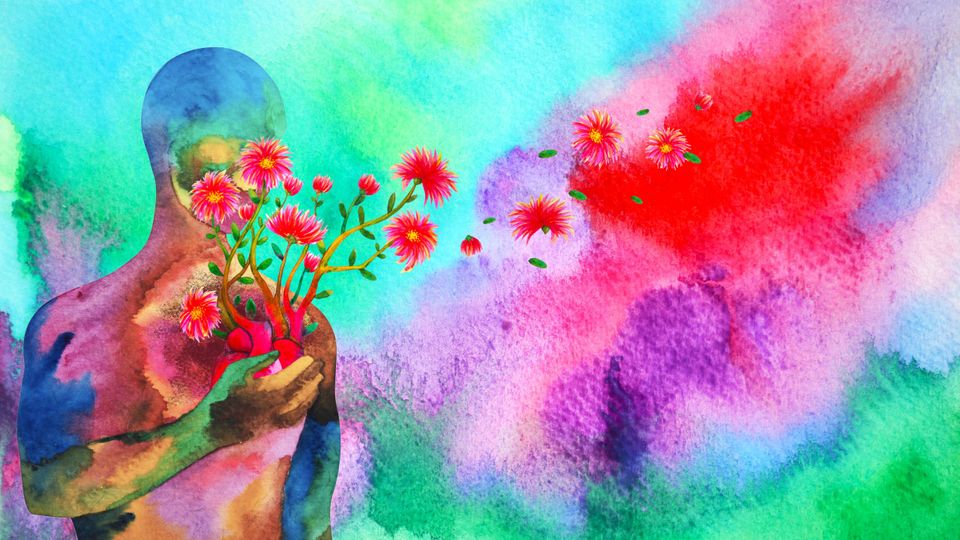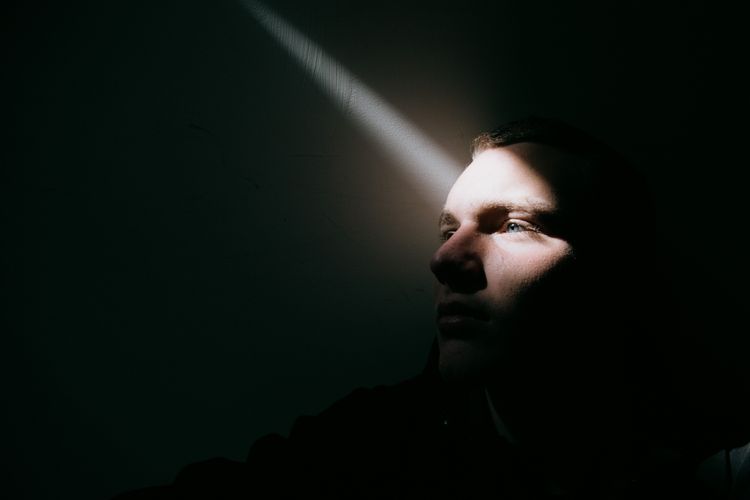Which Is More Helpful: Tough Love or Empathy?

How do you help a friend whose mental health is starting to crumble? Do you use tough love, or do you just listen?
I came across an image the other day while I was scrolling through my Instagram feed. It was an old tweet that read:
“I used to suffer from depression, but through hard work, persistence, and never giving up, I now suffer from anxiety and depression.”
This post is a joke, I get it. But it got me thinking.
Why would a depression quote Instagram page use this? Someone must have seen this post, chose it for their page, and expected some depressed scroller to be “inspired” by it and hit the subscribe button.
Why was that the case? What does it tell us about how we should treat a struggling friend? Let’s look at both sides.
Empathy
This post is comforting reassurance that it’s ok to feel the way you feel. It’s a validation. It’s meant for those who have been given unhelpful, tone-deaf, “buck up” kind of advice for their anxiety and depression.
You see a person in pain, and instead of being with them in their pain, you tell them there are simple solutions to their problems that they just aren’t seeing. It’s instructing rather than listening. And most will feel embarrassed and isolated because of their inability to take the advice being given.
When someone tries to inspire you out of a depression, it can be something like hearing “Happy” by Pharrell Williams on the radio. It’s gross. Turn that off.
On the other hand, experiencing someone else’s pain through music can be a powerful experience, especially if it’s a pain you’ve felt yourself. It’s the spiritual equivalent of having someone to cry with.
To give an example from an unlikely source, and a great storyteller, Matthew McConaughey recently shared his story of empathic understanding on a podcast.
To sum it up, after experiencing some personal troubles, McConaughey decided to speak to someone. He visited a monastery where he spoke to a priest named Brother Christian.
McConaughey confided his pain, guilt, and sadness to a man he thought would give him advice. Instead, after 4 hours of confessing, Brother Christian only said one thing, “me too.” At that moment, McConaughey was no longer alone. He became overwhelmed with feelings of forgiveness and relief. Empathy had set him free. Sometimes that’s all it takes.
Tough Love (All You)
Let’s revisit the Twitter post from a different angle. If a depressed person saw that while looking for comfort on an Instagram page (which isn’t a great idea to begin with), they might interpret it a different way. Taken seriously, what is the message?
The message is that conscious action, concerted effort, and leaps of faith to improve your mental health, do not work. Things like that will only make you feel worse.
And what follows from that? You’re doomed. There is no amount of effort that can save you from your pain. You are stuck like this and that resonates with your feelings of hopelessness. Feel better now?
Reading this post when I was at my worst would have filled me with dread. I never found comfort in the “haha I’m so fucking depressed lol” culture.
Empathy is crucial for a struggling person, but I don’t believe anything can be gained from saying a situation is hopeless, even if it validates their feelings.
You need to tell them the truth, and you need to hear them out. But that begs the question, after you’ve been heard, what do you do now?
A friend can only listen, comfort, and understand for so long. Eventually, the act of healing falls on the person suffering.
A heroic, stoic, proactive, or whatever term you’d like to use, effort is required on part of the individual if any progress is to be made. I’m only speaking for myself, but taking responsibility is the only thing that’s made a difference in the long term.
This isn’t bad news. It means actions can make a difference and something can be done.
For example, deciding to go to therapy is one of the strongest ways of taking responsibility for your wellbeing. And developing resilience helps to nourish your mental health.
If you don’t believe me, check out this 2018 study which investigated how “grit” affected the psychological wellbeing of college students.
The researchers discovered a negative correlation between grit and things like depression, anxiety, and low self-esteem. And they concluded that grit could serve as an “independent predictor” of mental health outcomes.
To illustrate that line of thinking, listen to this owl:
I saw this when I was struggling years ago, and it helped me.
Mental illness is a fight. How could it not be? It’s a fight only the individual can understand. And it’s as brutal as any other. Other people can’t face your demons. Only you can do that.
You are capable of that.
That’s what a struggling friend needs to know.
What Is Best?
I’m no therapist, but it’s obvious that healing requires empathy before anything else. All the same, no progress can be made without conscious action on part of the person suffering. So are they meant to be responsible or are they meant to be understood?
You’re right. They need both.
Like McConaughey said, being empathized with “let the floodgates open on me to forgive.” It let him know that he wasn’t alone in his feelings, and that gave him the strength to see the world in a new light. For most people, I believe this is what must occur first.
However, if he didn’t make the choice to express his pain to someone, he never would have had that experience. Even if it only makes a sliver of difference, even if it only plants a seed, taking the leap to communicate your pain, get help, or do anything positive for your mental health, is worth the effort.
Hear a friend, let them know how human their problems are, and then encourage them in their fight to get well. That’s the best way to help.
Letting them know you love them couldn’t hurt either.



